Through eight public hearings, the House select committee investigating the January 6, 2021, Capitol riot has put together a sprawling jigsaw puzzle. It used audio, video, documents, testimony and graphics to assert that then-President Donald Trump spread a lie about the 2020 election being stolen and fired up an angry, armed crowd to converge on Congress as it was certifying Joe Biden’s victory — and then failed to use his power as president to immediately stop the violence.
But there is a missing piece in the committee’s work so far: a method to stop Trump’s voter fraud lie from spoiling future elections and undermining American democracy. This is a particularly difficult challenge when Trump himself leads his party’s 2024 presidential primary polls and many Republicans have bought into his falsehoods.
“Trump knew the election was fair and still he tried everything he could to effectively rig it himself,” SE Cupp pointed out. “He knew his supporters wanted to overturn the election and he knew some of them were armed.”
“The result? A country on the brink of a coup. Violence, vandalism and fatalities. Lives ruined. Hundreds of people charged with crimes. An electorate divided and untrusting of a system that unequivocally worked. A new breed of political candidate emboldened to follow in Trump’s footsteps, vowing to ignore election results they don’t like.”
Some Republicans have jumped off the Trump train in light of the January 6 committee’s work, but he could still win a plurality of the party’s primary voters as he did in 2016. Federal and state prosecutors are examining the attempt to overturn the 2020 election, but there is no way of knowing what they will ultimately do. The House select committee is promising more hearings in the fall. And a bipartisan group of senators is seeking to pass a law removing any shred of doubt that a vice president lacks the power to determine the winner of a presidential election.
Frida Ghitis wrote that the committee “provided evidence of how the former President, desperate to overturn the result of the election he lost, was an active, if indirect, participant in the January 6 effort to stop the certification of Joe Biden’s victory in the 2020 presidential election…
“It is vital to establish Trump’s role because he has all but announced he is running for president in 2024. Attorney General Merrick Garland just reassured the country that ‘No person is above the law in this country,’ vowing to hold accountable those ‘criminally responsible for trying to overturn’ the election.
Two Stanford University researchers believe their work shows a path forward for increasing Republicans’ belief in the integrity of US elections. Katherine Clayton and Robb Willer found in an experiment that GOP voters who were shown “real messages from Republican politicians who have endorsed the legitimacy of the 2020 election results” are more likely to say the 2020 election was valid.
For more:
Covid in the White House
When Trump was diagnosed with Covid-19 a month before the 2020 election, the ensuing events included a three-day stay at Walter Reed National Military Medical Center, a presidential drive-by around the hospital with two masked Secret Service agents and a triumphant return to the White House, where he took off his mask and posed for a photo on the balcony.
On Thursday, when Biden tested positive for the disease, there was little drama. Biden’s symptoms have been described as mild. As infectious disease expert Dr. Kent Sepkowitz noted, the Covid outlook has changed quite a bit since Trump’s illness — “first and foremost is the availability of multiple vaccines, which were in clinical trials and not yet accessible to Trump in the autumn of 2020. Unlike the vaccinated Biden, his predecessor had no immunity to the virus, which put him at substantially higher risk for severe illness. Biden’s vaccinations place him in a group at extremely low risk for serious infection, even for a person in his late 70s.
“Whether you believe that Trump was sicker than he initially acknowledged when he contracted the virus, or he was simply getting the presidential treatment, early intervention may have made all the difference for him. The treatment he received undoubtedly helped him — and anyone else fortunate to receive the Covid-19 ‘cocktail,’ which was a major advance at that time. In October 2020, this ‘cocktail’ included intravenous monoclonal antibody therapy, corticosteroids (dexamethasone) and remdesivir, an intravenous antiviral drug.”
For more:
Tropical heat wave
The UK experienced its hottest day ever — 40.3C (104.5F). “Welcome to Britain,” wrote Rosa Prince, “where this week urban fires spontaneously erupted, the Queen’s guards melted under bearskins, trains ground to a halt and Members of Parliament — grudgingly — removed their jackets.
“It was all terribly un-British. Sure, there had been forest fires in France all week, and Australia and California seem to spend half the year ablaze these days — but Wennington in east London (where a sudden inferno consumed a row of terraced houses)? That’s freaky stuff…
The heat waves in Europe, the US and China raised anew questions about the seriousness of the efforts to respond to climate change worldwide. Paul Hockenos wrote that Europeans may be shedding their aversion to American-style air conditioning. “The desperate urge to stay cool,” he noted, “has Europeans, in particular, rethinking their prejudices and shelling out for indoor cooling systems.”
“In Europe, according to one industry estimate, just 20% of homes have AC units. In the United Kingdom, which this week suffered through its highest recorded temperature, it’s less than 5%. In Germany, it’s only about 3%. That’s compared to 90% in the US.”
Mass shootings
Last week, a legally-armed bystander killed a gunman during a mass shooting at an Indiana mall on the same night a Texas House investigative committee released a preliminary report about the failure of police to act when another shooter killed 19 students and two teachers at an Uvalde elementary school.
“Conservatives are applauding this as a victory for their grand theory of public safety: A nation so awash in weapons that a ‘good guy with a gun’ will be around to take out a bad guy with a gun,” wrote Jill Filipovic. “But on closer inspection, the math doesn’t quite work.”
“Even with a ‘good guy’ present, the Indiana mall shooter was still able to kill three people, injure two and traumatize many others. That’s not a victory against gun violence; it’s a horrific scenario by any measure…”
For more:
Supreme fallout
When the Supreme Court overturned Roe v. Wade in June, eliminating the federal right to abortion, Justice Clarence Thomas, the senior conservative on the bench, declared in a concurring opinion that the court should now reconsider its 2015 decision in favor of same-sex marriage.
Then, on Tuesday, 47 Republicans joined the Democratic majority in the House in a vote to enshrine marriage equality in federal law; the bill’s future in the Senate is uncertain.
In the US, the votes of Senate Republicans are crucial to deciding whether same-sex marriage will be codified in the law. A number said last week they would support the bill, while Sen. Marco Rubio called it “a stupid waste of time.”
“Marriage equality should be settled law,” wrote Hope. “Let’s confirm that with a Senate vote and a signature from the President. We have not a moment to waste.
For more:
Biden’s low approval
“Of course, whenever inflation is bad, the party in power is going to struggle to contain it,” wrote Van Jones. “But Black disappointment goes deeper than concerns about rising costs. African Americans came out in big numbers in 2018 and 2020. Yet, in 2022, there is a widespread feeling that the Democrats have over-promised and under-delivered for Black voters.”
Biden has accomplished more than he gets credit for, Jones noted, but “the problem is that Democrats promised or hinted at so many more improvements for Black America: voting rights protections, major police reform, even potential reparations for slavery. None of these issues has been successfully addressed…”
Don’t miss
AND…
Take your time
It’s scary out there. “Flying is a hassle, gas is still wildly expensive, so maybe it’s better to scrap your plans and just give up on taking a break,” Sara Stewart observed. “What’s the point? At least, that’s been a popular theme these days. It’s also exactly what Americans don’t need to be encouraged to do.”
“Bear in mind,” Stewart wrote, “travel has always been more stressful than most of us would ever admit on Instagram. We often surrender to a necessary amnesia about the realities of traveling. We go into it thinking, like happy fools, that it’s meant to be perfectly fun and relaxing without any of the headaches, even though a common refrain upon returning is: ‘I need a vacation to recover from my vacation.’ We have to delude ourselves about the allure, though, so that we can do it again next year.”






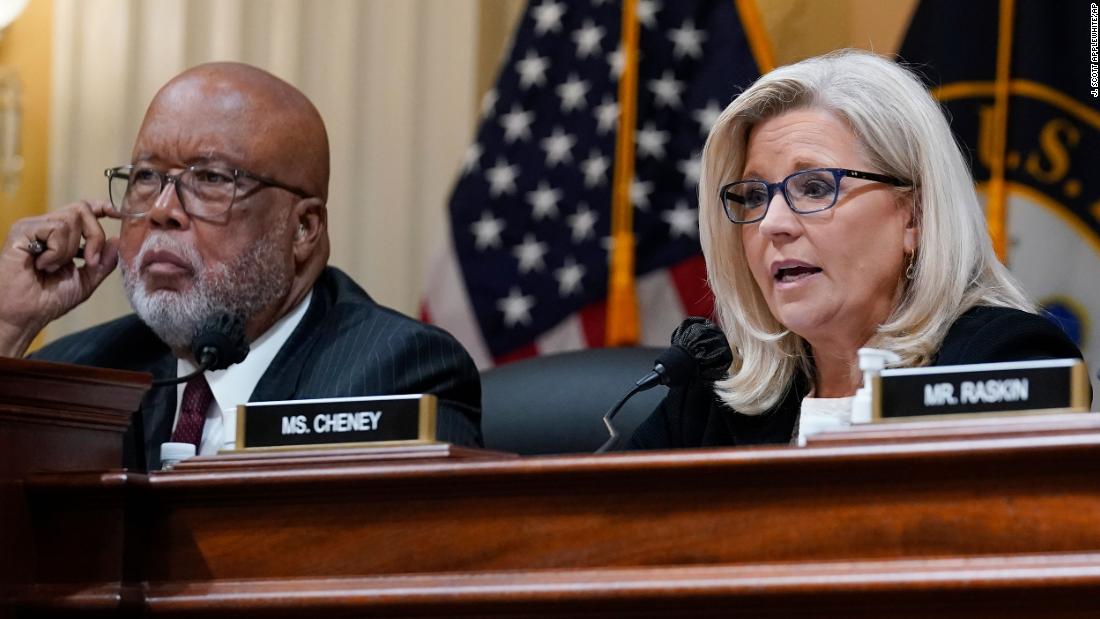
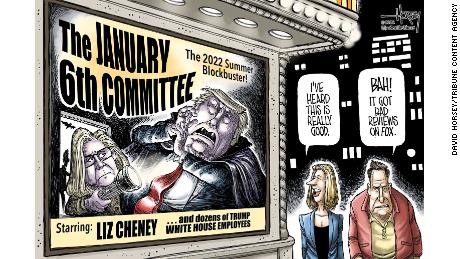
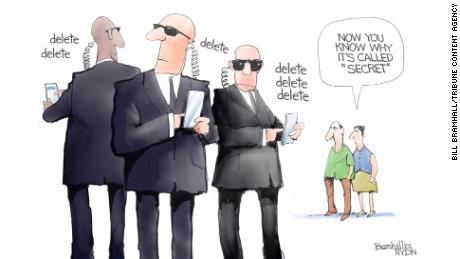

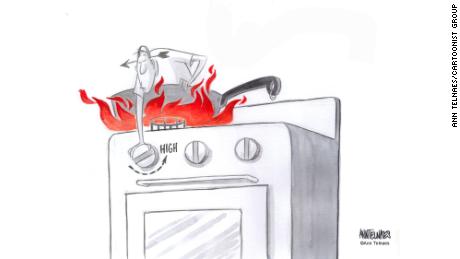
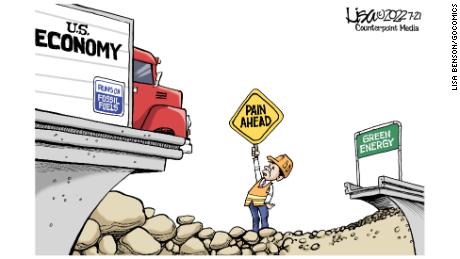
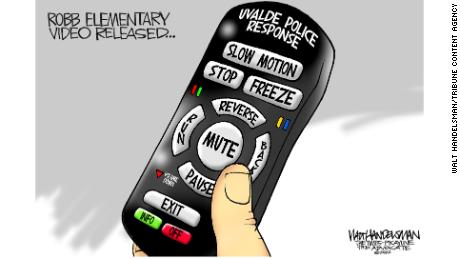
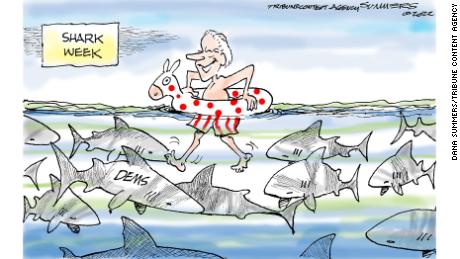

More News
College Protesters Make Divestment From Israel a Rallying Cry
Mayor Adams Walks Back Budget Cuts Many Saw as Unnecessary
5 Takeaways From the Supreme Court Arguments on Idaho’s Abortion Ban